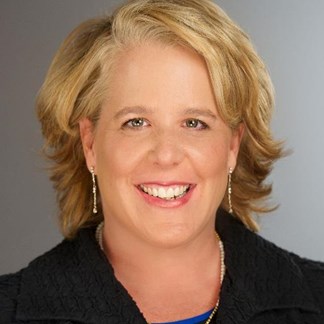5 minutes with... Roberta Kaplan
 When did you decide to become a lawyer? Why?
When did you decide to become a lawyer? Why?
When I was a very young child, I spent a lot of time with my grandmother. At one point, she sent a letter to my uncle (who was then in the Peace Corps in India) telling him that one day she had asked me, albeit with some consternation in her voice, why it was that I continued talking non-stop, from morning to night. My answer was: “But Grandma, I can’t help myself. I love to talk.” That’s probably when I decided to become a lawyer.
Starting out, what did you expect from a career in the law?
I expected two things, mainly. To pursue justice and to never be bored.
Has it lived up to your expectations?
While I have probably experienced every emotion from despair to exultation (and all the ones in between) during my career as a lawyer, I have never for a single moment been bored at my job. It is actually an amazing privilege to be able to say that about one’s line of work. And I hope that through the case of United States v Windsor, I managed to help obtain justice for my client Edie Windsor (and many other gay people).
How did you get into the areas of law you are known for today? By design? Chance? Both?
Since, as discussed above, I always loved to talk, I always knew that I wanted to become a litigator. And since my law firm Paul, Weiss then was and is the best litigation firm in the world, it was a very easy choice.
What do you consider to have been your big break?
I’m not sure there was one big break; there have been a series of opportunities throughout my career. But the one thing I do know is that when you are given an opportunity in life, what you need to do is trust your own instincts and take it.
"Achieving full equality for gay people in all 50 states is only a matter of time."
What differences do you see in today's legal market compared to when you started?
The single biggest change in litigation practice is the advent of e-mails, texts, Twitter and the massive amounts of data that result. When I started practicing law, you would literally read every single relevant document in a case. Today, when there are many gigabytes of such data, that is virtually impossible.
What achievement are you most proud of?
Deciding in a matter of seconds to take on pro bono Edie Windsor’s challenge to the constitutionality of the so-called Defense of Marriage Act (DOMA).
What do you consider your greatest failure or regret?
Not to spend time working for the United States Department of Justice. But my career is not over – yet.
What have you enjoyed most during your career in the legal profession?
This is going to sound incredibly 'geeky', but I think I get the most intellectual fulfillment when writing (and editing and editing and editing) a persuasive brief. But I have to admit that cross-examining a hostile witness at trial is pretty fun as well.
What law would you change, abolish or create?
While we succeeded in striking section 3 of DOMA which prevented the marriages of gay people from being recognized by the federal government, section 2 (which permits states to refuse to recognize the marriages of gay people from other states) still stands. It needs to go down as well. The same is true for all the other 'mini DOMAs' that currently prevent gay couples from marrying in 33 states.
Who is your legal hero?
As a woman litigator who benefited from the prior efforts of so many, it would be very hard not to mention trailblazers like Justice Ruth Bader Ginsburg [or as the website calls her, "Notorious R.B.G."] who was the greatest civil rights lawyer of her time; Justice Margaret Marshall of Massachusetts’ highest court, who was first to articulate so powerfully the now obvious proposition that gay people should be treated like everyone else; or now retired Chief Judge Judith S Kaye of New York, for whom I clerked.
What slogan would you like to be remembered by?
Perhaps with the title from one of my son's favorite rhyming books when he was little, 'A Dog Needs a Bone'.
What advice would you give to students trying to enter the legal profession today?
Make sure that you love what you are doing and follow your passion. That’s the only way to do this job given how hard you have to work.
Congratulations on your amazing achievement in convincing the Supreme Court to declare DOMA unconstitutional! What's next in the pursuit of equality for same sex couples in the United States?
Once the Supreme Court established (as it did) in the Windsor decision that gay people have equal dignity, achieving full equality for gay people in all 50 states is only a matter of time. Thus, if Windsor was the 'Battle of Normandy' in the long struggle for gay civil rights, the most recent decision was the “Liberation of Paris.” Paris, Texas – that is.
What are the highs and lows or particular challenges involved in undertaking high-profile litigation on a regular basis?
The 'highs' are that it is always incredibly exciting and interesting, and stressful. And the 'lows' are exactly the same – that it is always incredibly exciting and interesting, and stressful.